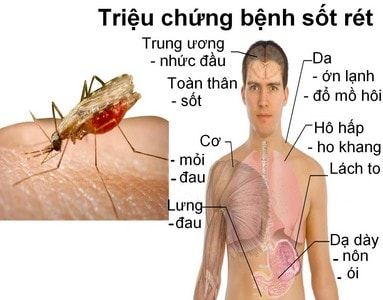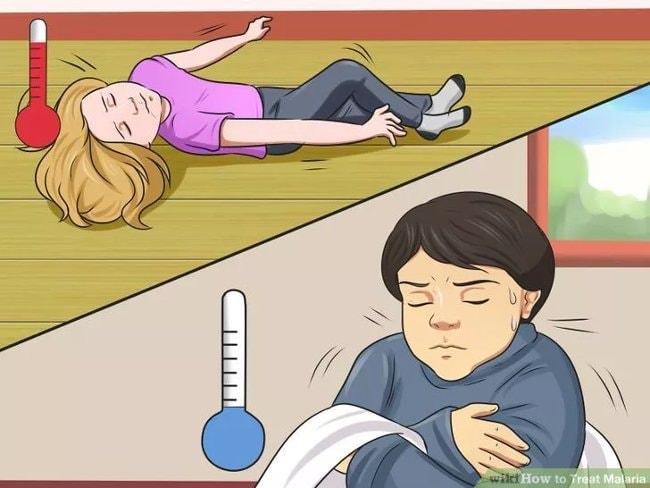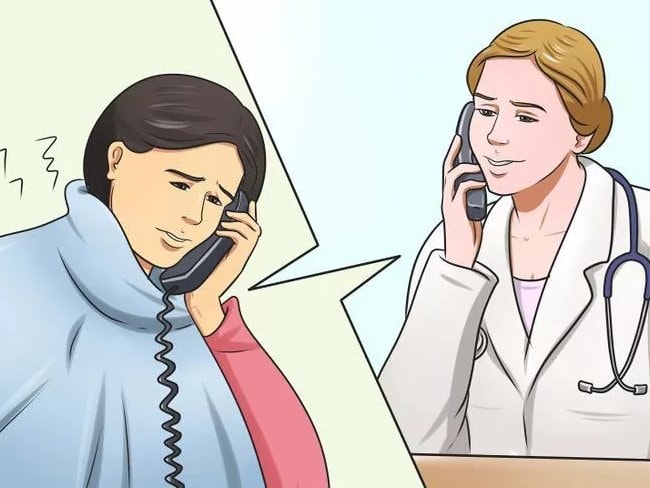How to quickly distinguish between 'dengue fever' and 'malaria' for proper treatment
(Baonghean.vn) - Dengue fever and malaria are both caused by the bite of an infected mosquito. How to distinguish them when the symptoms are both fever and chills.
 |
| Mosquitoes are vectors of malaria. Illustration photo |
How to distinguish:
Reason
Dengue fever:Spread by the bite of an infected Aedes aegypti mosquito. It can spread if the mosquito bites an infected person and then infects others. Dengue mosquitoes usually attack during the day.
Malaria:Caused by the bite of a female Anopheles mosquito. It can only be transmitted by the bite of a female Anopheles mosquito, unlike dengue fever. Malaria mosquitoes usually attack at night.
Incubation
Dengue fever:Symptoms of dengue fever appear 4-5 days after being bitten.
Malaria:Symptoms of malaria appear 10-15 days after being bitten.
Symptom
Dengue fever:Attacks the patient suddenly, headache persists for some time along with symptoms like bone pain. Dengue fever may disappear early but often reappears as skin rash.
Malaria:Fever lasts for a shorter period of time but has many symptoms such as joint pain, nausea, sweating, anemia... Malaria often returns with symptoms: chills, fever, and profuse sweating.
Diagnose
Dengue fever:Can be thoroughly tested through a chemical process such as antigen testing and assay.
Malaria:Can be tested by testing through microscopic images of the virus.
3 common types of malaria:
- Uncomplicated malaria is the most common type, but people rarely go to the hospital because they often mistake it for a cold, flu or a common infection. Residents living in high-risk areas often recognize the symptoms of uncomplicated malaria and treat it themselves.
- Severe malaria can cause organ failure and can even be fatal. Severe malaria requires immediate medical attention.
- Recurrent malaria after the first malaria attack is often not easily recognized because the disease often does not have prominent symptoms.
 |
| Uncomplicated malaria can occur in episodes and usually lasts from 6 to 10 hours. Illustration photo |
Recognizing symptoms of uncomplicated malaria:
Uncomplicated malaria may occur in episodes that usually last from 6 to 10 hours. During each episode, the patient will experience a cold phase, a hot phase, and then a sweating phase.
During the cold stage, the patient will feel cold and shiver all over.
During the hot phase, the patient will have fever, headache and vomiting. Children may also have convulsions.
During the sweating stage, the patient will feel tired and sweat a lot while the body is at normal temperature.
Other symptoms include mild yellowing of the skin and rapid breathing.
Severe malaria symptoms:
Severe malaria can be fatal and requires immediate medical attention.
Many patients will have nonspecific symptoms such as fatigue, headache, nausea, vomiting or body aches. If the disease progresses to a stage that affects internal organs, blood or metabolic functions, the symptoms of the disease will become more severe.
Severe malaria can be fatal and requires immediate medical attention. Contact your doctor or seek emergency medical attention immediately if you experience any of the following symptoms:
+ Unusual behavioral changes
+ Loss of consciousness
+ Convulsions
+ Anemia (looking pale, feeling tired, weak, dizzy, or having a rapid heart rate)
+ Urine is red or dark (due to hemoglobin)
+ Difficulty breathing
+ Abnormal blood clotting process
+ Low blood pressure
+ Kidney failure (little urination, swollen feet or toes due to fluid retention, chest pain)
+ Low blood sugar (especially in pregnant women)
Whether or not you have symptoms, you should tell your doctor that you have been to an area where malaria is common. While people in high-risk areas usually wait to see if uncomplicated malaria develops, people in low-risk areas should not do so. If you suspect malaria, you should call your doctor immediately for testing and treatment.
How to prevent malaria
 |
| If you detect symptoms of the disease, you should contact your doctor for timely treatment. Illustration photo |
There is currently no vaccine to prevent malaria. Therefore, to prevent malaria, we need to prevent mosquito bites by:
- A humid, unsanitary environment is a favorable condition for parasites that cause malaria to thrive and develop. Therefore, to prevent the disease safely, each person needs to be aware of cleaning the environment where they live.
- When sleeping, you should use mosquito nets to avoid mosquito bites and use insect spray to repel mosquitoes.
- If possible, install mosquito nets in places with doors or windows, use fans to help the air circulate better, mosquitoes will no longer have a chance to live.
- Wear light-colored, skin-covering clothing instead of dark-colored clothing to avoid attracting mosquitoes.
- If you detect symptoms of the disease, you need to go to the hospital for examination and receive timely treatment advice from a doctor.
Pear Flower
(Synthetic)
| RELATED NEWS |
|---|

